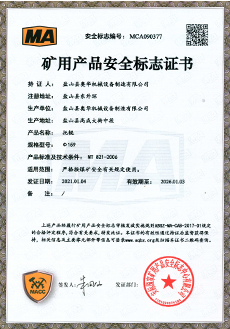 Afrikaans
Afrikaans  Albanian
Albanian  Amharic
Amharic  Arabic
Arabic  Armenian
Armenian  Azerbaijani
Azerbaijani  Basque
Basque  Belarusian
Belarusian  Bengali
Bengali  Bosnian
Bosnian  Bulgarian
Bulgarian  Catalan
Catalan  Cebuano
Cebuano  Corsican
Corsican  Croatian
Croatian  Czech
Czech  Danish
Danish  Dutch
Dutch  English
English  Esperanto
Esperanto  Estonian
Estonian  Finnish
Finnish  French
French  Frisian
Frisian  Galician
Galician  Georgian
Georgian  German
German  Greek
Greek  Gujarati
Gujarati  Haitian Creole
Haitian Creole  hausa
hausa  hawaiian
hawaiian  Hebrew
Hebrew  Hindi
Hindi  Miao
Miao  Hungarian
Hungarian  Icelandic
Icelandic  igbo
igbo  Indonesian
Indonesian  irish
irish  Italian
Italian  Japanese
Japanese  Javanese
Javanese  Kannada
Kannada  kazakh
kazakh  Khmer
Khmer  Rwandese
Rwandese  Korean
Korean  Kurdish
Kurdish  Kyrgyz
Kyrgyz  Lao
Lao  Latin
Latin  Latvian
Latvian  Lithuanian
Lithuanian  Luxembourgish
Luxembourgish  Macedonian
Macedonian  Malgashi
Malgashi  Malay
Malay  Malayalam
Malayalam  Maltese
Maltese  Maori
Maori  Marathi
Marathi  Mongolian
Mongolian  Myanmar
Myanmar  Nepali
Nepali  Norwegian
Norwegian  Norwegian
Norwegian  Occitan
Occitan  Pashto
Pashto  Persian
Persian  Polish
Polish  Portuguese
Portuguese  Punjabi
Punjabi  Romanian
Romanian  Russian
Russian  Samoan
Samoan  Scottish Gaelic
Scottish Gaelic  Serbian
Serbian  Sesotho
Sesotho  Shona
Shona  Sindhi
Sindhi  Sinhala
Sinhala  Slovak
Slovak  Slovenian
Slovenian  Somali
Somali  Spanish
Spanish  Sundanese
Sundanese  Swahili
Swahili  Swedish
Swedish  Tagalog
Tagalog  Tajik
Tajik  Tamil
Tamil  Tatar
Tatar  Telugu
Telugu  Thai
Thai  Turkish
Turkish  Turkmen
Turkmen  Ukrainian
Ukrainian  Urdu
Urdu  Uighur
Uighur  Uzbek
Uzbek  Vietnamese
Vietnamese  Welsh
Welsh  Bantu
Bantu  Yiddish
Yiddish  Yoruba
Yoruba  Zulu
Zulu Polyurethane Pulley - Durable and High-Performance Solutions
Understanding Polyurethane Pulleys A Comprehensive Overview
Polyurethane pulleys have gained significant popularity in various industrial applications due to their impressive range of properties and advantages. Made from a versatile material known for its durability, flexibility, and resistance, polyurethane is an excellent choice for manufacturing pulleys that can withstand harsh operating conditions.
One of the primary benefits of polyurethane pulleys is their high resistance to wear and tear. Unlike traditional materials such as metal or plastic, polyurethane can endure significant abrasion, making it ideal for applications involving heavy loads and constant movement. This durability extends the lifespan of the pulleys, resulting in reduced maintenance costs and downtime for machinery.
In addition to their wear resistance, polyurethane pulleys are known for their excellent load-bearing capacity. The material's unique characteristics allow it to handle considerable weight without deforming. This capability is essential in industries such as manufacturing, automotive, and material handling, where pulleys are crucial for the efficient movement of goods and equipment.
Another essential aspect of polyurethane pulleys is their ability to operate in various temperature ranges. Polyurethane can maintain its properties in both high and low-temperature environments, making it suitable for outdoor applications or facilities that experience extreme temperatures. As a result, these pulleys provide consistent performance regardless of external conditions, contributing to their reliability in diverse settings.
polyurethane pulley

Polyurethane also offers impressive energy absorption qualities. When used in dynamic applications, these pulleys can help minimize vibrations and shocks during operation. This characteristic not only protects the machinery but also contributes to the safety of the workers involved. By reducing the impact of sudden movements, polyurethane pulleys enhance the overall stability of the systems they are integrated into.
Furthermore, the versatility of polyurethane allows for customization. Manufacturers can easily modify the hardness, color, and shape of the pulleys according to specific application requirements. This flexibility ensures that each pulley performs optimally in its designated role, improving overall system efficiency.
In terms of environmental impact, polyurethane is often an excellent choice. Many polyurethane products can be recycled, which contributes to sustainability efforts in various industries. As businesses become increasingly aware of their ecological footprints, incorporating recyclable materials into their processes is a step towards reducing waste.
In conclusion, polyurethane pulleys are an essential component in many industrial applications due to their durability, load-bearing capacity, temperature resilience, energy absorption, and customization options. As industries continue to evolve, the demand for effective and reliable components like polyurethane pulleys will undoubtedly grow, solidifying their place as a critical element in modern engineering and manufacturing processes.
-
Revolutionizing Conveyor Reliability with Advanced Rubber Lagging PulleysNewsJul.22,2025
-
Powering Precision and Durability with Expert Manufacturers of Conveyor ComponentsNewsJul.22,2025
-
Optimizing Conveyor Systems with Advanced Conveyor AccessoriesNewsJul.22,2025
-
Maximize Conveyor Efficiency with Quality Conveyor Idler PulleysNewsJul.22,2025
-
Future-Proof Your Conveyor System with High-Performance Polyurethane RollerNewsJul.22,2025
-
Driving Efficiency Forward with Quality Idlers and RollersNewsJul.22,2025





























